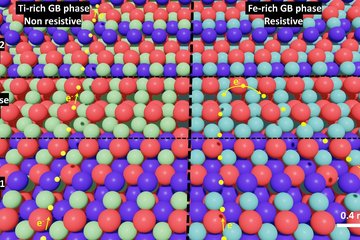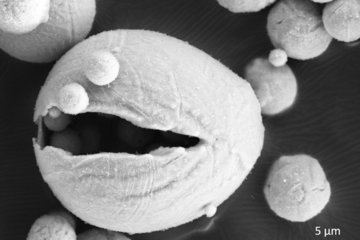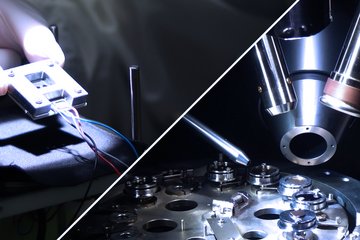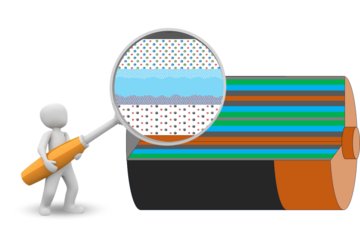All genres
281.
Talk
Designing and understanding novel alloys towards superior properties. 2016 European Workshop on Materials Design, Grenoble, France (2016)
282.
Talk
Austenite formation along dislocations in medium manganese steels. Thermec 2016, Intl. Conf. on Processing & Manufacturing of Advanced Materials, Graz, Austria (2016)
283.
Talk
On the Role of δ phase in Hydrogen Embrittlement of Alloy 718: Multi-scale H-Mapping in a Ni–Nb Model Alloy. SINTEF and NTNU's Environmental Assisted Cracking (SNEAC) workshop, Trondheim, Norway (2016)
284.
Talk
Lath martensite plasticity. Seminar at ICAMS, Ruhr-Universität Bochum, Bochum, Germany (2015)
285.
Talk
Segregation engineering enables nanostructured dual-phase laminates via solute decoration and phase transformation at lattice defects. Colloquium lecture at Department of Mechanical Engineering, Technische Universiteit Eindhoven, Eindhoven, The Netherlands (2015)
286.
Talk
Atomic Scale Analysis of Interfaces: Gibbs Adsorption Revisited. Colloquium at Physics Department, University of Erlangen, Erlangen, Germany (2015)
287.
Talk
Nanostructuring metallic alloys through confined phase transformations. Colloquium Lecture - GDCh (Gesellschaft Deutscher Chemiker)
, Bielefeld, Germany (2015)
288.
Talk
Nanostructured steels: Hierarchical materials engineered down to the atomic scale. European Symposium on Martensitic Transformations, ESOMAT 2015
, Antwerp, Belgium (2015)
289.
Talk
Segregation engineering enables nanostructured bulk steels by confined martensite-to-austenite reversion. Asia Steel International Conference 2015 (Asia Steel 2015), Yokohama, Japan (2015)
290.
Talk
Nanostructured steels: Hierarchical materials engineered down to the atomic scale. ESOMAT 2015, Antwerp, Belgium (2015)
291.
Talk
Intrinisically nanostructured steels. Materials Week 2015, Dresden, Germany (2015)
292.
Talk
Grain boundary segregation enables nanostructured martensite-austenite laminates by solute decoration and phase transformation at defects. 10th European Symposium on Martensitic Transformations (ESOMAT), Antwerp, Belgium (2015)
293.
Talk
Hydrogen-assisted Failure in Nickel base alloy UNS N07718. Euromat 2015, Warsaw, Poland (2015)
294.
Talk
Segregation Engineering: Confined Phase States at Lattice Defects. Workshop "Recent Progress in Plasticity and Phase Transformations", Bochum, Germany (2015)
295.
Talk
Scale hoping simulations and real atoms. ICAMS Workshop ‘From Atoms to Continuum’,ICAMS, Ruhr University Bochum, Bochum, Germany (2015)
296.
Talk
Phase transformations at dislocations. Workshop Possibilities and Limitations of Quantitative Materials Modeling and Characterization, Bernkastel, Germany (2015)
297.
Talk
Low Temperature Austenite Reversion in Martensitic Stainless Steel. GLADD Meeting, Leuven, Belgium (2015)
298.
Talk
Lath martensite plasticity: A micro-strain mapping study coupled to 3D microstructure characterization. TMS 2015 144th Annual Meeting & Exhibition, Orlando, FL, USA (2015)
299.
Talk
Hydrogen-assisted Failure in Nickel base alloy UNS N07718. Corrosion 2016, Vancouver, Canada (2015)
300.
Talk
Lath martensite transformation, µ-plasticity and tempering reactions: potential TEM aids. Seminar at Institute of Nanotechnology (INT), Karlsruhe Institute of Technology (KIT), Karlsruhe, Germany (2015)











